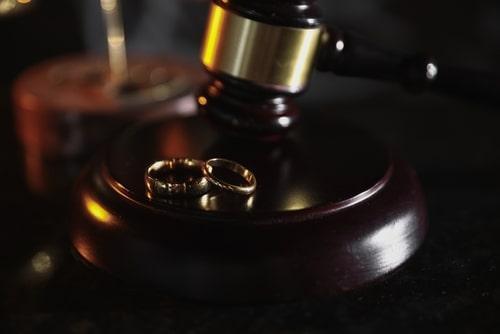Divorce Trials in Illinois: What You Need to Know
 Before a divorce can be completed, divorcing spouses must address multiple issues including the division of marital assets and debts, parental responsibilities, parenting time, and spousal support. Some spouses are able to reach a decision through alternative resolution methods like mediation. Others can negotiate a settlement through their attorneys. However, when all else fails, a divorce case may advance to trial. Whether you have just filed for divorce or you are well into the process, it is important to know how divorce trials work in Illinois.
Before a divorce can be completed, divorcing spouses must address multiple issues including the division of marital assets and debts, parental responsibilities, parenting time, and spousal support. Some spouses are able to reach a decision through alternative resolution methods like mediation. Others can negotiate a settlement through their attorneys. However, when all else fails, a divorce case may advance to trial. Whether you have just filed for divorce or you are well into the process, it is important to know how divorce trials work in Illinois.
Divorce Discovery and Pretrial Conferences Precede a Divorce
Before a divorce goes to trial, the attorneys will gather all the relevant facts and information. There may be depositions, requests for production of documents, interrogatories, and more. The attorneys will use the information to develop their arguments.
Many divorce cases resolve before the trial actually begins. A settlement may be reached at any point in the divorce process. Additionally, the attorneys will have an opportunity to meet with the judge during pre-trial conferences where the judge may suggest various solutions to the unresolved issues. However, if a settlement is not reached on the disputed issues, the case will advance to trial.
Divorce Trials Are Similar to Other Civil Trials
Divorce and family law cases are civil matters. There is not a jury like there is in a criminal trial. Each spouse’s attorney presents their case and advocates for their client’s preferred outcome. The attorneys may present evidence like financial documents, child-related reports, photographs, text messages, and more. They may call witnesses to the stand to testify. For example, character witnesses may testify about a spouse’s parenting ability or domestic violence history. Expert witnesses may testify about complex elements of the divorce case such as real estate appraisal or child custody evaluations. The attorneys will have the opportunity to cross examine the other side’s witnesses and ask them additional questions.
At the end of the trial, the judge will evaluate all of the testimony and evidence and make a decision. The divorce judgment is usually final. However, it may be possible to appeal the judge’s decision under a narrow range of circumstances.
Contact a Kane County Divorce Lawyer
If you are getting divorced, you need an experienced, knowledgeable legal advocate by your side. At Goostree Law Group, our St. Charles divorce attorneys know that some divorce cases are not able to be resolved through negotiation or mediation. We are fully prepared to represent you in court. Call us today at 630-584-4800 for a free, confidential case assessment.
Source:
https://www.ilga.gov/legislation/ilcs/ilcs4.asp?ActID=2086&ChapterID=59&SeqStart=8300000&SeqEnd=10000000











